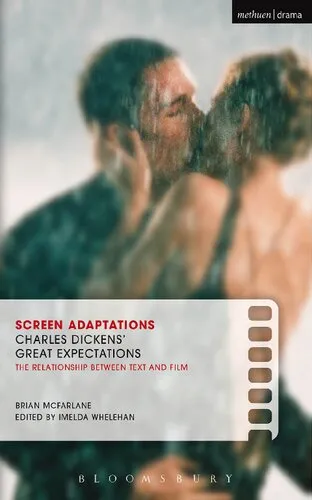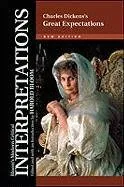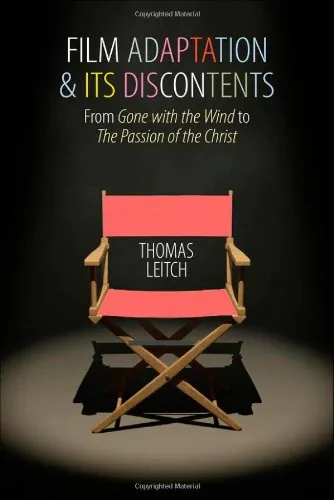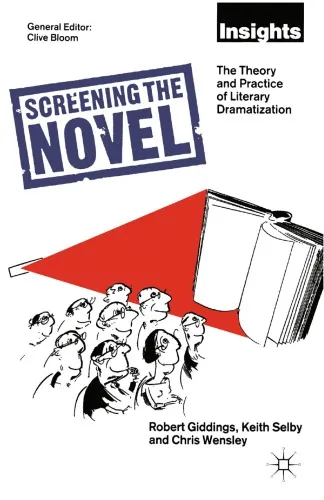Screen Adaptations Charles Dickens’ Great Expectations: The Relationship between Text and Film
4.0
Reviews from our users

You Can Ask your questions from this book's AI after Login
Each download or ask from book AI costs 2 points. To earn more free points, please visit the Points Guide Page and complete some valuable actions.Related Refrences:
Introduction
Welcome to a captivating exploration of the intersection between literature and cinema, where the vivid world of Charles Dickens’ Great Expectations meets the art of filmmaking. In this comprehensive guide, we delve into the intricate relationship between text and film, uncovering how timeless narratives are translated and transformed on screen.
Detailed Summary of the Book
Our book, Screen Adaptations Charles Dickens’ Great Expectations: The Relationship between Text and Film, offers an exhaustive look at how the classic novel has been adapted into various cinematic forms. It examines both the fidelity and creativity involved in translating Dickens' rich storytelling to the screen, providing readers with insights into the nuances that directors, screenwriters, and actors bring to their adaptations.
Spanning a range of film versions, from the black-and-white era to modern adaptations, the book scrutinizes key scenes, character portrayals, and thematic elements. It offers readers an understanding of both the constraints and liberties filmmakers face when striving to capture the essence of Dickens’ intricate plot and profound character developments.
Key Takeaways
- The adaptability of Dickens’ narrative, which allows it to transcend time and medium, is a testament to its universality and enduring appeal.
- Cinematic adaptations often reflect the socio-cultural context of their time, offering a lens through which to analyze both the original text and its reinterpretations.
- Screen adaptations are not mere reproductions but interpretations that can introduce new dimensions to a well-trodden narrative.
- The challenge of maintaining narrative fidelity while exploiting film’s visual and auditory capabilities requires creative ingenuity.
Famous Quotes from the Book
"Film adaptations, while seemingly beholden to their literary origins, often become independent creations that resonate with or diverge from the source material in meaningful ways."
"In the translation from page to screen, a novel’s transformation is not merely a change of medium; it is a renewal of narrative energy and vision."
Why This Book Matters
This book is essential for readers and film enthusiasts who wish to deepen their understanding of adaptation as a creative process. It bridges literary studies and film analysis, providing a scholarly framework that enhances appreciation for both Dickens' work and its cinematic renditions. The book navigates the delicate balance between maintaining the integrity of the original text and innovating to suit a different art form, ultimately highlighting how classic literature continues to inspire and challenge filmmakers worldwide.
Free Direct Download
You Can Download this book after Login
Accessing books through legal platforms and public libraries not only supports the rights of authors and publishers but also contributes to the sustainability of reading culture. Before downloading, please take a moment to consider these options.
Find this book on other platforms:
WorldCat helps you find books in libraries worldwide.
See ratings, reviews, and discussions on Goodreads.
Find and buy rare or used books on AbeBooks.
1390
بازدید4.0
امتیاز50
نظر98%
رضایتReviews:
4.0
Based on 0 users review
"کیفیت چاپ عالی بود، خیلی راضیام"





